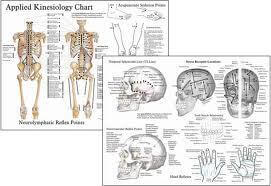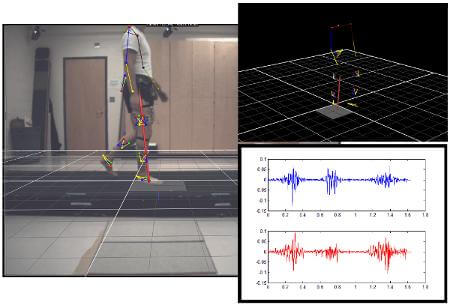What is Kinesiology?
Kinesiology, also known as human kinetics, is the scientific study of human movement. Kinesiology addresses physiological, mechanical, and psychological mechanisms. Applications of kinesiology to human health include: biomechanics and orthopaedics, strength & conditioning, sport psychology, rehabilitation, such as physical and occupational therapy, as well as sport and exercise. Individuals who have earned degrees in kinesiology can work in research, the fitness industry, clinical settings, and in industrial environments. Studies of human and animal motion include measures from motion tracking systems, electrophysiology of muscle and brain activity, various methods for monitoring physiological function, and other behavioural and cognitive research techniques.
Kinesiology is a therapy where a practitioner will assess a patient's health by testing their muscles. The idea is that any imbalance of physique, chemistry, nutrition or emotion can be detected by the variation of stress resistance in various muscle groups. The practitioner can then treat what he or she finds by employing methods of acupressure on certain points of the anatomy and this readjusts the nervous system.
Kinesiology means the study of motion, in particular the study of how muscles act and coordinate to move the body. However, in the natural health field, the term kinesiology is seen and used in a different way. Here, muscles become monitors of stress and imbalance within the body where 'Muscle Testing', the key technique in Kinesiology, is used as an effective and versatile tool for detecting and correcting various imbalances in the body which may relate to stress, nutrition, learning problems, and injuries and so on.
Kinesiology aims to improve your health and well being by stimulating your body’s own healing potential. It works on the principle that the body mind and spirit are connected and through the balance of these, full health can be achieved. Kinesiology sessions may include counselling. Acupressure, colour therapy, sound therapy, reflexology, emotional release techniques, chakra and meridian balancing, flower essences, homeopathy and nutritional changes.
What is Kinesiology Lab?
The mission of the Neurocognitive Kinesiology Laboratory is to study the relationship between physical activity and cognitive health across the lifespan. From a neuroelectric perspective, examining the relationship between exercise behaviour and cognition associated with improved health and effective functioning.
The lab tests include a treadmill test that measures a child’s oxygen consumption, an indication of cardiovascular fitness; an EEG to measure electrical activity in the brain; an MRI to look at brain structure; a test that tracks eye movements as the student does a task; a scan that shows body composition; and a questionnaire that measures cognitive performance.
Kinesiology restores the whole system to balance thus facilitating the self-healing process. It can:
- Increase energy and vitality
- Prevent illness
- Improve posture
- Relieve physical pain and tension
- Release and manage emotions and stress
- Enhance brain function and co-ordination
- Discover individual nutritional needs and sensitivities
- Anxiety, fears and phobias
- Allergies and food sensitivities
- Arthritis and joint pain
- Asthma
- Back pains, lower back pain and slipped disc
- Breast pains
- Bloating and gas
- Candida and thrush
- Chronic fatigue and ME
- Co-ordination and balance problems
- Depression
- Digestive problems
- Dyslexia
- Eczema, rashes and skin conditions
- Elbow pain
- Frequent infections and immune problems
- Frozen shoulder and neck pain
- Heavy or restless legs
- Headaches and migraines
- Insomnia, poor sleeping patterns
- IBS - constipation and diarrhea
- Low energy levels
- Menstrual and hormonal problems
- Poly Cystic Ovaries Syndrome- PCOS
- Repetitive Injury Strain -RSI
- Sinus problems
- Stress
- Tennis Elbow
- Tinnitus
To treat the body as a whole and not as a series of separate components. It's said that energy flow is increased and that by correcting the imbalances that the kinesiologist finds, the body is brought back to a state of health.
A weak muscle, for example, may displace others in your body, which then causes others to weaken or overwork themselves into a state of spasm. This leads to joint pain and a general feeling of malaise as the bones are not being correctly supported by the weakened muscles. Kinesiology may help to address this.
Kinesiology can also benefit learning difficulties, brain function, pain relief, insomnia, depression, relationship problems, hormonal disorders, structural problems (back aches), addictions, fear and phobias and a variety of other conditions.
Enhanced Learning and Brain Function
Much of the electrical, circuit or nervous system work in Kinesiology comes into the realm of 'brain integration' and deals with aspects such as learning problems. Kinesiology has developed many 'switch on' points and techniques for the eyes, ears, coordination and the brain as a 'whole'.
The power of Kinesiology in this area has been brought to the fore by Dr. Paul Dennison, whose discoveries updating conventional cross patterning movements have been most profound. While 'cross-crawling' is considered a normal motor activity, many people are not 'switched on' to this integrated movement. Consequently their body prefers non integrated modes and circuits which have a detrimental effect on their ability to learn or respond appropriately to stress. Switching people back on in this respect is very basic to Kinesiology work. The simplicity of techniques which one can learn in this area is truly amazing.
Emotional Stress Release Techniques
Stress related work has become a major part of the Kinesiology field, and fundamental to its effectiveness in this area is the Emotional Stress Release or Stress Defusion concepts.
Stress Release techniques are very simple yet most powerful. They are taught in all Kinesiology courses and are used regularly in consulting work. This is because at the basis of many disharmonies we find stress and emotions blocking or impairing proper body and mind functioning. Stress Release can help to clear blockages related to past or present traumas, belief systems, negative thoughts etc.
The basis of Stress Release can be used by any individual for their own growth or to help others. It also functions effectively when used with affirmations or when working with goals.
But what does it actually do?
Many adherents of the therapy advocate the powerful effect that the treatment has on the emotional state of the patient. Administered through the muscles, significant improvement can be seen in the mind.
And how exactly is this done?
There are various different methods that are employed by a kinesiologist to treat a patient:
- Chemical testing: A substance suspected of upsetting your balance is tested on your tongue or stomach while your arm muscle is tested. The kinesiologist can then rule this substance out or confirm it as a problem.
- Meridian tracing: Meridians are energy paths within the body that lead to key organs such as the liver. The energy flow within these are stimulated by massage or brushing.
- Lymphatic points: Stimulated lymphatic points increase their flow to muscles and to nearby organs, thus benefiting the patient.
- Skull points: Points on the skull near blood vessels can be stimulated to increase blood flow to muscles and organs.
All of these may be done by techniques such as acupuncture, joint manipulation and nutritional supplements. They are usually carried out over four to six sessions.
Kinesiology is primarily a system of preventative health care. Its main aim is to create and sustain good health, well being and effective functioning and resolve the common complaints which prevent people from reaching their full potential.
Because it addresses the whole person, including the energy aspect, and not just symptoms, so it can discover the underlying cause and treat it successfully. It can of course also be used very effectively to deal with clients with serious health problems as improved health and well-being may still be achieved.
Every health problem will have at least one imbalance. Each imbalance will have at least one component to it (whether that is chemical, mental, physical or energetic). Finding imbalances and treating holistically is core to Systematic Kinesiology, so it can help with just about anything, improve energy, posture, help with pain, emotional problems and stress, recovery from accidents or other trauma's..
Kinesiology is a Powerful and Effective Tool to Harmonies Many Conditions.
Kinesiology for Emotional Imbalances
- Autistic Spectrum Disorder
- Anxiety
- Fear
- Anger
- Phobias
- Panic attacks
- Trauma
- Post-traumatic stress syndrome
- Co-dependencies
Kinesiology for Mental Stress, Depression and Learning
- Depression
- Dyslexia
- Attention deficit hyperactivity disorder, retained primitive reflexes
- Vestibular and memory disorders
Kinesiology for Structural Alignment
- Spinal health
- Back and joint pain
- Muscle strain
- Scoliosis
- Pelvic imbalances
- Sciatica
- Whiplash
- Sports injuries
- Carpal tunnel syndrome
Kinesiology for Health
- Detox
- Weight loss
- Organ health - liver, kidneys, heart, gallbladder, gut
- Gallbladder and kidney stones
- Cardiovascular problems
- Endocrine and hormonal dysfunction
- Reproductive system and women’s health – PMS
- Chronic fatigue
- Digestion
- Arthritis
- Insomnia
- Headaches
- Allergies
Kinesiology for Addictions
- Cigarettes
- Alcohol
- Drugs
- Food
- Behavioral
Kinesiology for Energy Harmony
- Soul centre balancing – yin yang
- Grounding dantien
- Meridian and acupoints
- Chakras
- Auric fields
- Bioenergetics
Kinesiology for Spiritual Growth and Creative Potential
- Centering and becoming present
- Life purpose
- Connecting with heart space
- Realizing your creative potential
- Expressing your unique self
- Finding the heart in your business
Kinesiology for Relationships
- Growing your loved relationships
- Harmonizes power plays and tension
- Bonding from the heart
- Adapted Physical Activity
- Aquatics Director
- Athletic Administration in School or College
- Athletic Trainer
- Biomechanics
- Cardiac Rehabilitation Specialist
- Chiropractic Physician
- Coaching at School or College
- Director of Youth Camps/ Sport Programs
- Epidemiologist – Physical Activity
- Exercise Physiologist
- Fitness Instructor or Program Director at Commercial Fitness Center - Program Director of Corporate Fitness Center - Sports Director at Resort
- Massage Therapist
- Medical Doctor
- Occupational Therapist
- Personal Trainer
- Physical Education Teacher at School or College
- Physical Therapist
- Physician’s Assistant
- Professor of Kinesiology, Physical Education
- Recreational Therapist
- Registered Nurse
- Respiration Therapist
- Sport Management
- Sport Psychologist for Performance Enhancement
- Sports Information Director
- Sports Officiating
- Strength and Conditioning Coach
- Sensor Medics Encore V29n & Qubit Systems Inc. Cardiopulmonary Exercise test systems, which permit evaluation of standard cardio-respiratory and metabolic parameters (e.g., VO2, VCO2, ventilation, tidal volume, end-tidal PCO2, 12-lead ECG), and resting and exercise flow-volume loops.
- Electronically braked cycle ergometers (concentric & eccentric) and motorized treadmills.
- Diaphragm electromyogram (EMGdi) and contractile respiratory muscle force/pressure measurement systems, including:
• 16-Channel Power Lab data acquisition system with 27” iMac computer running Lab Chart Pro software, which is integrated for use with the abovementioned cardiopulmonary exercise test systems
• Mulitpair esophageal electrode catheters that permit simultaneous, breath-by-breath measurement of EMGdi (an index of neural respiratory motor drive), esophageal, gastric and transdiaphragmatic pressures
• 8 channel biomedical amplifier
• Validyne DP15 differential pressure transducers with 4-channel Validyne carrier demodulator. - Pulmonary function test equipment, including spirometers and constant-volume body plethysmograph.
- Non-invasive (PhysioFlow®) cardiovascular hemodynamic measurement device, which permits resting and exercise estimates of cardiac stroke volume, heart rate, cardiac output, etc.
- Peripheral locomotor muscle EMG measurement system.
- BioDex® peripheral locomotor muscle strength testing system.
- IDEXA scanner for detailed assessments of body composition (e.g., fat mass, fat free mass, bone mineral density, segmental body composition analysis).
- Modified rebreathing test system/apparatus, which permits detailed evaluation of central and peripheral chemoreflex responsiveness to hyperoxic- and hypoxic-hypercapnia, respectively.
- Blood biochemistry measurement & analysis devices (e.g., -80oC freezer, refrigerated centrifuge, acid-base analyzer, etc.).
Cardiopulmonary Exercise test systems
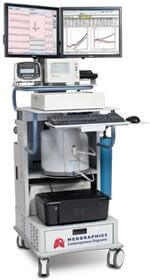 Examination of a Person’s Heart, Lung and Metabolism. Cardiopulmonary exercise testing is one of the most precise methods to assess a patient’s cardiopulmonary system. In case of abnormal limitations, cardio-pulmonary exercise tests and analyses can provide important indications of possible heart, lung or metabolic problems.
Examination of a Person’s Heart, Lung and Metabolism. Cardiopulmonary exercise testing is one of the most precise methods to assess a patient’s cardiopulmonary system. In case of abnormal limitations, cardio-pulmonary exercise tests and analyses can provide important indications of possible heart, lung or metabolic problems.
Electronically Braked Cycle Ergometers (Concentric & Eccentric)
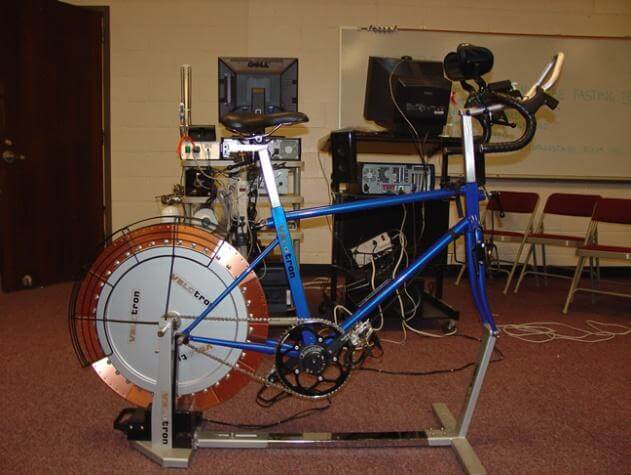
Motorized Treadmills
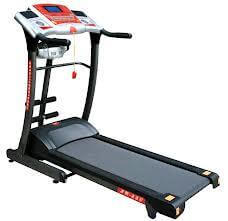
Diaphragm Electromyogram (EMGDI) and Contractile Respiratory Muscle Force/Pressure Measurement Systems
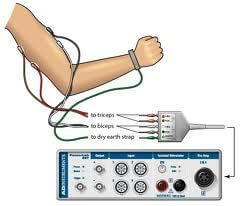
Body Plethysmograph
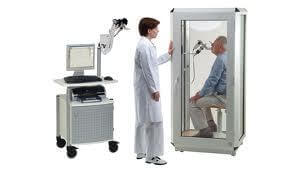
Spirometry
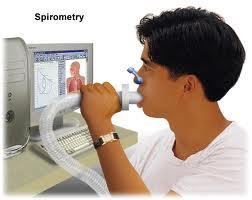
IDEXA Scanner
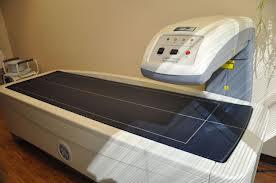
Rebreathing Testing System
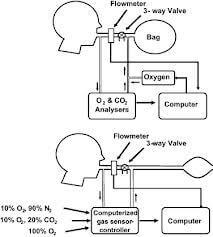
Video Analysis Lab
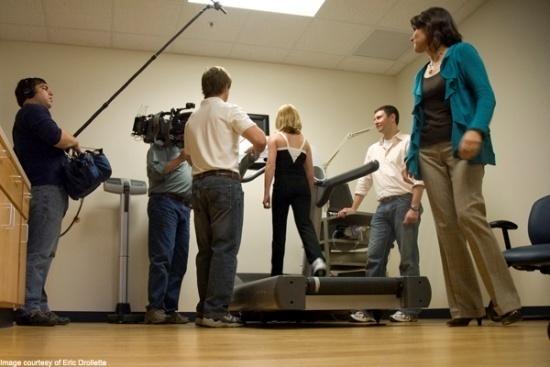 The Video Analysis Lab contains extensive technology for the collection and analysis of data from videotape and audiotape sources. Included is a video editing system which allows for videotape editing, variable speed viewing and easy tape copying.
The Video Analysis Lab contains extensive technology for the collection and analysis of data from videotape and audiotape sources. Included is a video editing system which allows for videotape editing, variable speed viewing and easy tape copying.
Biomechanics Lab
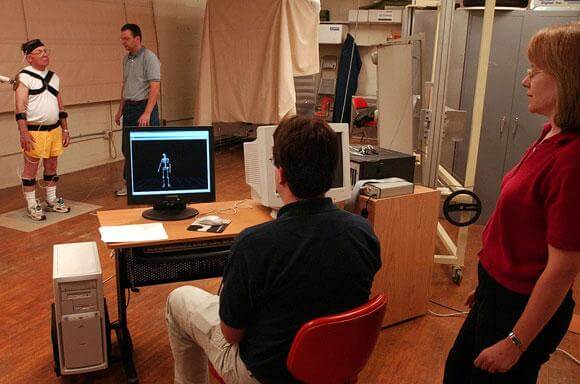 The 2000-square-foot Biomechanics Lab is a state-of-the-art laboratory with five primary data collection systems. The laboratory has two AMTI force platforms, five high-speed video cameras and recorders and two Peak Performance video digitizing systems, one high speed Qualisys infrared camera, two Noraxon telemetric EMG systems and a KinCom isokinetic dynamometer. The laboratory has numerous related peripheral electronics and computers.
The 2000-square-foot Biomechanics Lab is a state-of-the-art laboratory with five primary data collection systems. The laboratory has two AMTI force platforms, five high-speed video cameras and recorders and two Peak Performance video digitizing systems, one high speed Qualisys infrared camera, two Noraxon telemetric EMG systems and a KinCom isokinetic dynamometer. The laboratory has numerous related peripheral electronics and computers.
Health & Fitness Assessment Lab – Tigerfit
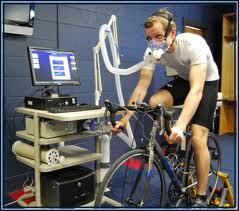 The TigerFit Health & Fitness Assessment Program utilizes the lab to provide on-going exercise programming and fitness education for the students, faculty, staff, alumni and community members. Undergraduate and graduate students develop skills in applied exercise technology, exercise physiology, cardiac rehabilitation and adult fitness programming. Some of the services provided by the Tiger Fit Comprehensive Health Profile include a physician screening, blood analysis, body composition and cardiovascular health and fitness.
The TigerFit Health & Fitness Assessment Program utilizes the lab to provide on-going exercise programming and fitness education for the students, faculty, staff, alumni and community members. Undergraduate and graduate students develop skills in applied exercise technology, exercise physiology, cardiac rehabilitation and adult fitness programming. Some of the services provided by the Tiger Fit Comprehensive Health Profile include a physician screening, blood analysis, body composition and cardiovascular health and fitness.
Exercise Biochemistry and Muscle Physiology Lab
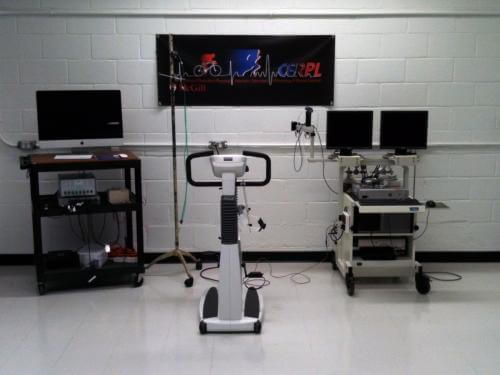 The Muscle Physiology Lab is designed and equipped for the study of muscle physiology in animal and cellular models. Current topics of interest that are being investigated include lactic acid metabolism, lactic acid transport across muscle cell membranes, and fatigue and oxygen uptake kinetics at the onset of contractions or exercise. Equipment in this lab includes a muscle stimulator, flow probes, peristaltic pumps, muscle myograph and load cells, computerized data acquisition systems, a blood gas/pH analyzer and a CO-Oximeter for measuring blood haemoglobin concentration and percent saturation of oxygen.
The Muscle Physiology Lab is designed and equipped for the study of muscle physiology in animal and cellular models. Current topics of interest that are being investigated include lactic acid metabolism, lactic acid transport across muscle cell membranes, and fatigue and oxygen uptake kinetics at the onset of contractions or exercise. Equipment in this lab includes a muscle stimulator, flow probes, peristaltic pumps, muscle myograph and load cells, computerized data acquisition systems, a blood gas/pH analyzer and a CO-Oximeter for measuring blood haemoglobin concentration and percent saturation of oxygen.
Motor Behaviour Lab
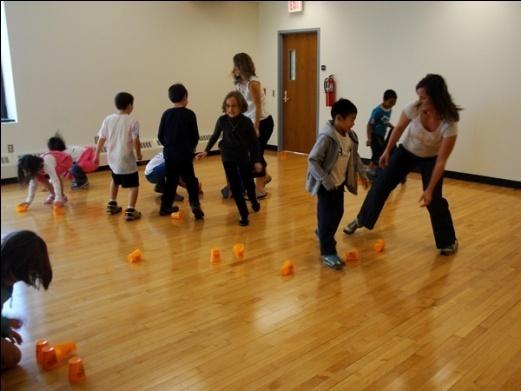 Research conducted in the Motor Behaviour Centre investigates the roles of cognitive factors in the learning and control of human movements. Processes such as feedback, perception, attention, motivation and response programming are examined to determine how skillful movements are acquired and performed. A motor development program in the Motor Behaviour Center focuses on kindergarten children who have low motor proficiency. These children participate in a structured movement activity program designed to enhance basic motor abilities and fundamental motor skills. Research is conducted related to children's development of motor abilities and acquisition of motor Skills.
Research conducted in the Motor Behaviour Centre investigates the roles of cognitive factors in the learning and control of human movements. Processes such as feedback, perception, attention, motivation and response programming are examined to determine how skillful movements are acquired and performed. A motor development program in the Motor Behaviour Center focuses on kindergarten children who have low motor proficiency. These children participate in a structured movement activity program designed to enhance basic motor abilities and fundamental motor skills. Research is conducted related to children's development of motor abilities and acquisition of motor Skills.
Exercise Biochemistry and Muscle Physiology Lab
The Muscle Physiology Lab is designed and equipped for the study of muscle physiology in animal and cellular models. Current topics of interest that are being investigated include lactic acid metabolism, lactic acid transport across muscle cell membranes, and fatigue and oxygen uptake kinetics at the onset of contractions or exercise. Equipment in this lab includes a muscle stimulator, flow probes, peristaltic pumps, muscle myograph and load cells, computerized data acquisition systems, a blood gas/pH analyzer and a CO-Oximeter for measuring blood haemoglobin concentration and percent saturation of oxygen.
The real goal of any Kinesiology ‘balance’ is to identify the bottom line cause of any imbalance and then resolve it. It may be nutritional, emotional, structural, psychological, energetic or even spiritual - something as simple as an ‘attitude’, or a forgotten memory. In a nutshell Kinesiology puts it all together. Using muscle monitoring to uncover the imbalances, It then restores to body/brain (left and right hemisphere) balance and neurologically resets your muscle memory.

